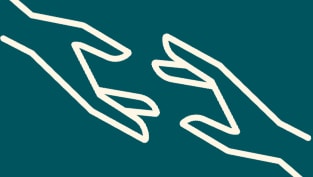

Let’s start at the end – the bank is not obligated to give anyone a credit card, line of credit, checkbook, or loans. This is entirely at the bank’s discretion.
The bank does have minimal obligations towards all its customers (yes, even those who have debts and execution proceedings, and even those who are insolvent) – Directive 422 of the Supervisor of Banks imposes on banks in Israel an obligation to allow everyone to open an account, manage standing orders, perform transactions online and receive documents (you are invited to read about it here ). But credit is a different story, and the bank is not obliged to give you a loan if it fears that you will not be able to repay it.
So here things get a little more complex.
A credit card, as the name suggests – a card that gives you credit, which is a synonym for loan or debt. In fact, it is a short-term loan. When I buy coffee and pay for it on credit, I received the coffee now but I will (actually) pay for it only at the end of the month. And as the credit limit on the card is, so is the amount of the loan I receive.
If I “overcharged” the card by 20,000 NIS during the month, I actually took out a loan from the credit card company, and I will only repay it at the end of the month. If I don’t have money in my account at the end of the month, the one who will be hurt is the credit card company, or the bank that issued the card, and not the stores where I paid. Therefore, the bank has every right to refuse to issue you a credit card, just as it cannot be forced to give you any other loan.
What is more, we are in the 21st century, and it is clear that you cannot do without a debit card, so the bank must issue you an immediate debit card (also called a “debit” or “direct” card), in other words – a card that looks like a credit card, and you can “iron” it with it at the supermarket, but –
Unlike a regular credit card, the account is not charged at the end of the month, but rather it is a card that makes an immediate charge to your bank account. If there is money in the account, the charge will go through, and if there is no money, the charge will be delayed. This way, it prevents you from getting into additional debt that you cannot pay.
Unlike a credit card, an immediate debit card also does not allow you to spread out payments, and it certainly cannot be used to take out loans, but if you are already in a debt situation, then this is probably the best solution, both for the bank and, more importantly, for you.
Financial complications don’t fall on us from the sky. They usually happen because of improper financial management over time, or because of some temporary setback – difficulties in business, unexpected expenses at home, etc. – that drag people into the honey trap of minus, credits and loans, which sometimes take many years to get out of.
Therefore, if you feel that your expenses are getting out of control, sometimes the right thing to do is to contact the bank on your own initiative and ask to replace the problematic credit card with a Direct card, thus saving yourself the heartache and stress that come with deepening your financial entanglement.
A Direct card is not a perfect solution – there are still places that don’t respect it (a little, fortunately), it can’t be used as security, and it doesn’t give the freedom and flexibility that a “regular” credit card gives, but sometimes limits can be a healthy thing, which actually protects us, and when it comes to money – this is doubly true, because healthy limits can prevent you from reaching financial collapse, and financial collapse is one of the most difficult traumas a family can experience, and it brings with it sleeplessness at night, and unfortunately also quite a few cases of outbreaks of illnesses and severe crises in the family.
So if you can’t make ends meet, and if your Direct debit card doesn’t work at the supermarket, the solution is not more credit or a loan. What you need to do in such a case is to get on a path of financial rehabilitation, stabilize your monthly cash flow, both at home and in your business, increase your income if necessary, settle your debts (in one way or another, or through legal action), and change your financial behavior so that you have peace of mind, at least in this area.
Financial rehabilitation is definitely possible – we at “Daf Hadash” know this, because we have already helped hundreds of families get out of the cycle of debt and achieve a life of financial well-being. Financial rehabilitation requires commitment and professional guidance (it is not something that can be done alone), but the bottom line – debts are not fate, and there is no debt that has no solution. You just need to avoid mistakes, make the right decisions and choose the right people to accompany you through the process.
The information on the “New Page” website is general and non-binding, and is not necessarily the most up-to-date information. The information is not intended to replace legal, financial or other advice, and in any case – it is advisable to consult a lawyer before making decisions regarding debt matters!
New Page is not responsible for the service provided by the lawyers rated on the site. Use of the site is the sole responsibility of the user, and in accordance with the Terms of Use | Accessibility Statement
